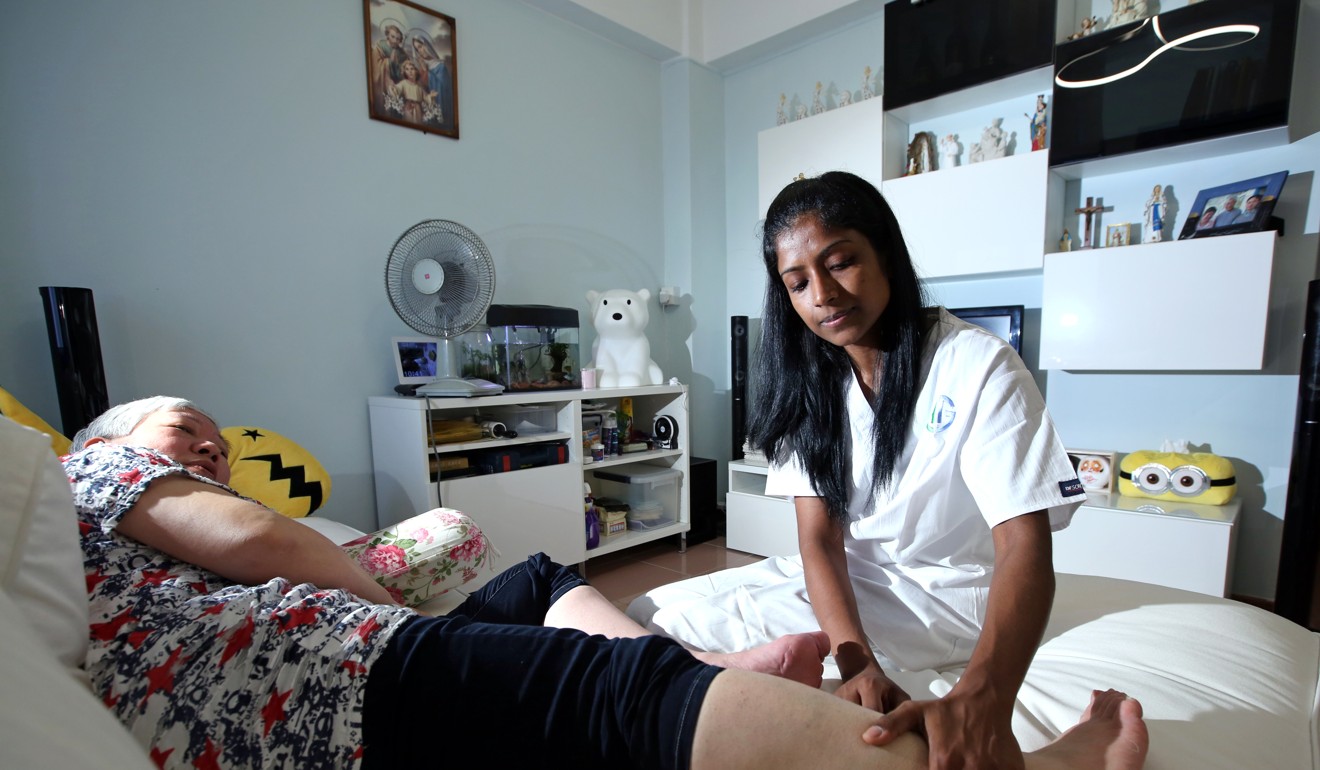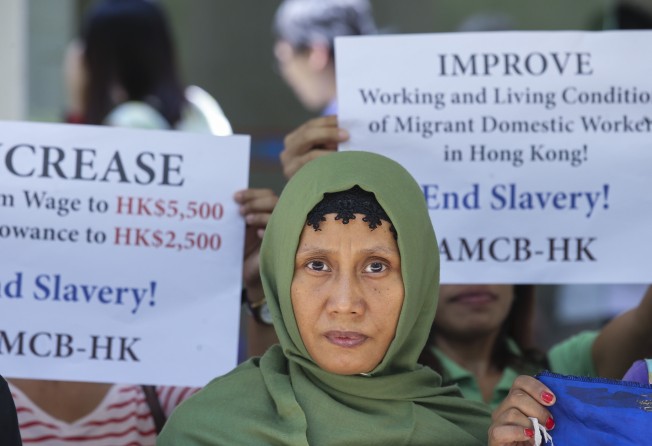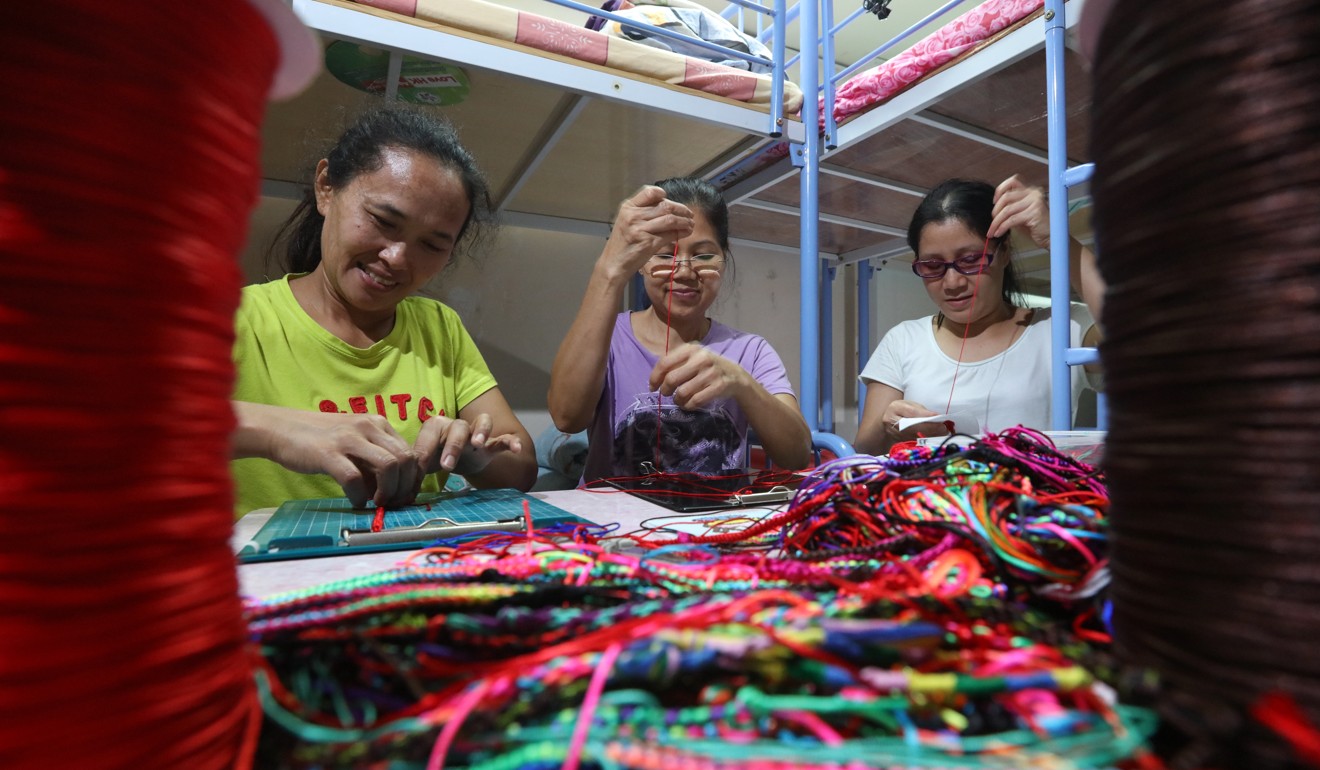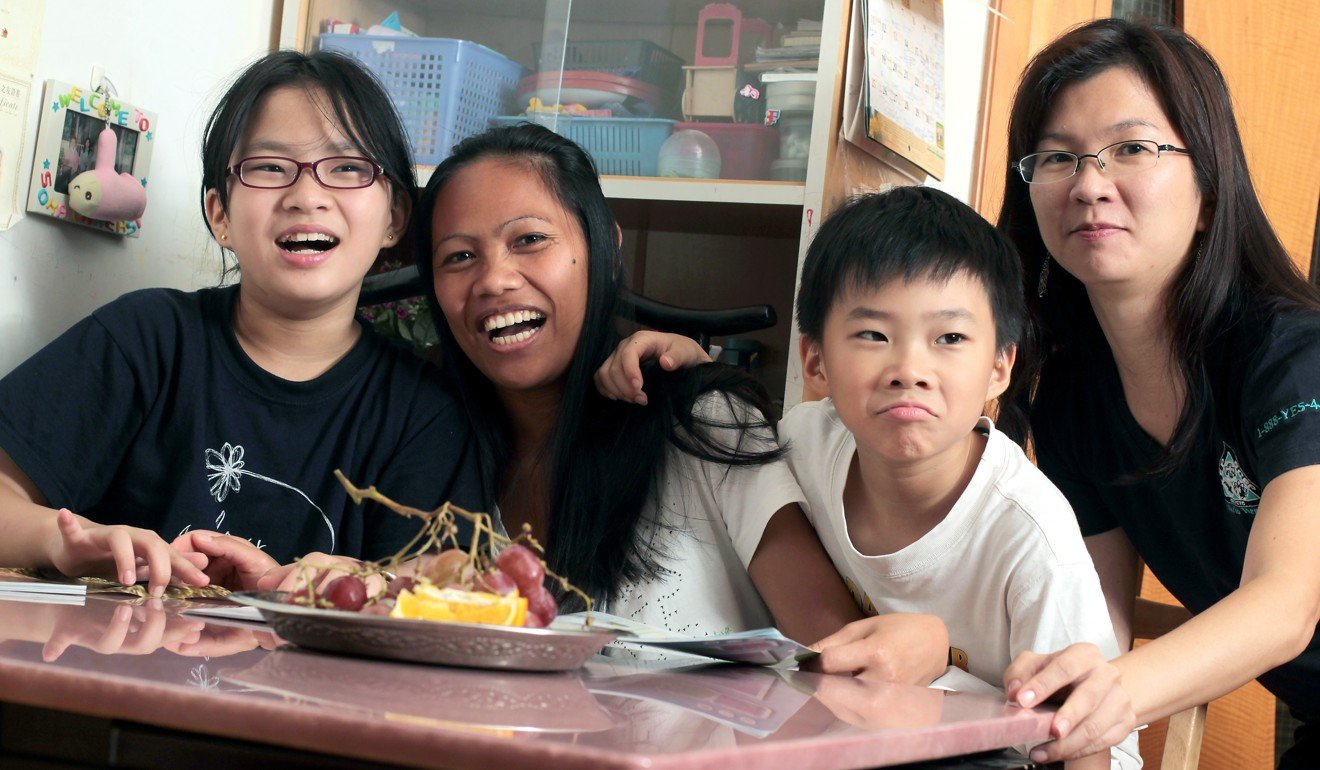
Train Hong Kong’s foreign domestic workers to be financially savvy, for the benefit of all
Lucinda Pike says given that foreign domestic helpers play an indispensible role in elderly and child care, more needs to be done to ensure they are able to avoid the many financial traps awaiting them in the city

Chief Executive Carrie Lam Cheng Yuet-ngor recently acknowledged the crucial contribution of Hong Kong’s 360,000 domestic workers to our city’s economic growth. She highlighted the problems Hong Kong would face without these workers, such as the inability for both parents to join the workforce and lack of elderly care. She’s absolutely right; one in eight households employ a migrant domestic worker – one in three households with children. With increasing difficulties recruiting skilled local care workers and limited options for child and elderly care, there are few alternatives.
Chief Secretary Matthew Cheung Kin-chung also recently said trained migrant domestic workers are the solution to our ageing population, stating that 40,000 households had migrant domestic workers solely living with and caring for the elderly.

Also last week, the Vietnamese consul general revealed that the city may be close to lifting a ban on migrant domestic workers from Vietnam, particularly to tackle the manpower shortage. Hong Kong is soon to welcome the first cohort of 1,000 Cambodian migrant domestic workers for the same reason.
The message here is loud and clear: by plugging the gaps in the care sector, migrant domestic workers are crucial for Hong Kong’s high-functioning economy, and the city desperately needs more.
Despite the indispensable role they play in the workforce, many domestic workers in Hong Kong face a myriad of financial traps they are ill-equipped to deal with and which play a significant role in the exploitation they face.
First, without proper access to formal banking credit services, many are forced to take out loans. One in two migrant workers borrow money to pay off recruitment fees for the mere opportunity to come to Hong Kong. Many, out of desperation, turn to lending agencies which can legally charge a whopping 60 per cent annual interest rate. High levels of debt are a huge concern as many fall into a downward spiral due to predatory interest rates.

Most leave Hong Kong worse off than when they first arrived; 13 per cent return home still owing debts, 10 per cent return with no money at all, and half return with only material possessions.
New arrivals are particularly vulnerable to exploitation and bad financial practises. Basic training on getting out of debt, budgeting, saving and planning for the future can go a long way to alleviate this. By teaching these skills to new arrivals, domestic workers can protect themselves before they spiral into debt, before they have established poor money management habits, and before they have set unhealthy expectations with family members on how much money they will send home each month.
It is important to recognise that this isn’t just a problem for domestic workers. Employers are often also victim to the illegal tactics used by loan sharksto harass and intimidate domestic workers.
However, improved money management, an understanding of how loans work, and an increase in savings can result in decreased stress levels for workers – and ultimately for employers. Domestic workers who are in control of their finances are happier at home, happier at work, and can focus their energy on caring for those in need.

Some consulates, such as the Philippines and Indonesian consulates, regularly reach out to new arrivals to give them the opportunity to learn important life skills such as these. I hope that as Hong Kong plans to open its doors to more migrant domestic workers, the consulates of Cambodia, Vietnam and other sending countries look to provide similar opportunities to their citizens.
If we expect domestic workers to be trained to care for our elderly and children, to have cooking, cleaning and language skills, we should also teach them to take care of themselves with vital life skills, such as financial literacy. If our care industry depends on migrant domestic workers, these skills will have a positive long-term impact not just on them, but also on their employers – and ultimately on Hong Kong as a whole.
Lucinda Pike is deputy executive director of Enrich, the only registered Hong Kong charity promoting the economic empowerment of migrant domestic workers. See: www.enrichhk.org